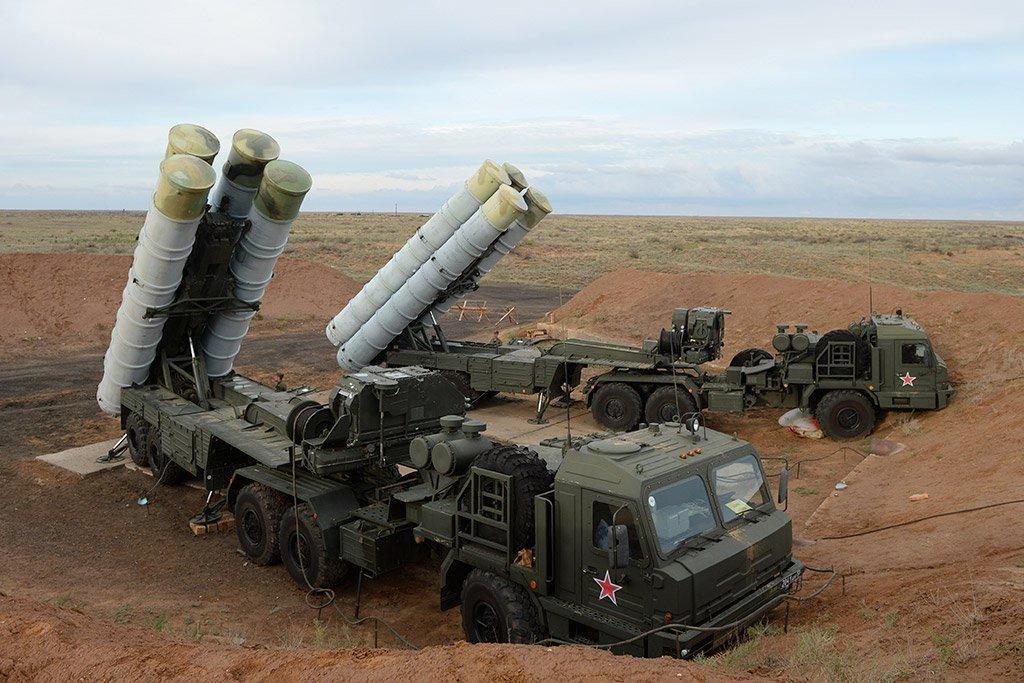
The United States will send a technical team to Turkey in the coming weeks to express specific concerns over the latter’s purchase of the Russian S-400 air defense systems particularly in regards to the flight safety of the U.S.’s F-35 aircraft, the head of the Turkish defense industry body has said, in a development that followed the U.S.’s Patriot missile system offer to the Turkish government.
“We have constantly been hearing about the potential harms and problems over the stealth fighter qualification of the F-35s in the event of its deployment to a place close to the S-400s. And we have always informed our counterparts about measures we have been taking. But although these have been raised for more than a year, we have never had a team visiting us to clarify what the technical risks are,” İsmail Demir, the head of the Defense Industry Presidency, told journalists at a meeting in Ankara on Jan. 7.
“We have told them several times to come and explain all their concerns if they think these are serious ones. Now, after all this, they have told us they will send a team in the coming weeks,” he said.
The U.S. has long been urging Turkey to cancel its plans to purchase the $2.5 billion worth Russian-made S-400 anti-ballistic missile system because it would harm the flight safety of the fifth generation F-35 aircraft, dubbed the stealth fighter. It is concerned that Turkey’s combination of S-400 batteries and F-35 fighters would give Russia a chance to closely study the U.S. aircraft and take measures in order to defeat it. A report issued by Pentagon in November 2018 had suggested Turkey’s removal from the F-35 production program if Turkey does not cancel its plans for the S-400s.
Aware of all these concerns, Demir reiterated that Turkey will use the Russian system as stand-alone equipment without integrating it with other weaponry or radar systems. “The system we will use will have its own radar, own threat-detection and own tracking system. We are thinking of an architecture that won’t be integrated with other systems,” Demir stated.
He also touched on the agreement with Russia on Turkey’s introduction of its own software and identification of the friend or foe system to the S-400s, adding that the capabilities of these systems were sufficient in Turkey’s needs in terms of both its radar and tracking systems. “Russians do understand this, because it’s about the sovereignty of a country.”
Turkey to negotiate for Patriots
It’s important that the U.S. decision to dispatch a technical team on the S-400s follows an offer by the U.S. for the sale of the $3.5 billion Patriot air defense systems to Turkey. The offer was conveyed to Ankara during a visit by a team composed of civilian and military officials last week after the State Department had notified Congress that the administration was ready to negotiate with Turkey on the sale of the sophisticated air defense system.
“Our decision to purchase the S-400s does not mean that all our needs [in terms of protecting the air space] are fully met,” Demir said, recalling that Turkey had to choose Russian systems in order to cover its airspace against imminent missile threats.
“Turkey is a big country and it’s a fact that we need more [air defense] systems,” he said, adding they will evaluate the U.S. offer on Patriots based on this reality.
Turkey needs four air defense systems and two of them will be provided through the S-400s, Demir said.
Following last week’s state-to-state talks, further negotiations on the details and technicalities of the U.S. offer on Patriots will be held at the level of companies, Demir said, recalling that Turkey has “strict red lines” when purchasing defense equipment.
“One of the issues that need to be discussed in technical terms on the Patriots is to what extent we can get the control of the software and of the identification of the friend or foe system. These were the same conditions we had introduced in our past talks with the U.S. We will talk about all these,” he said. “That’s why I can’t say what will happen, but our conditions are known.”
On Turkey’s request of technology transfer, Demir stressed that commercial talks have not started yet but all the details will be on the table once the companies launch negotiations.
Demir also informed that Turkey’s talks with the French-Italian consortium Eurosam and its own works for developing a national long-range anti-ballistic systems which can be integrated with NATO systems are also underway.
First F-35 to be deployed in late 2019
On speculations that the U.S. might cancel the delivery of the F-35 aircraft in the event of Turkey’s deployment of the S-400s, Demir said his presidency was only dealing with the technical aspects of the process.
“In our planning, we have a running timetable that stipulates the deployment of our F-35s to Turkey in the fall of 2019. On the one hand, deliveries will continue and, on the other hand, the training [of the pilots] will continue in the U.S.,” he said.